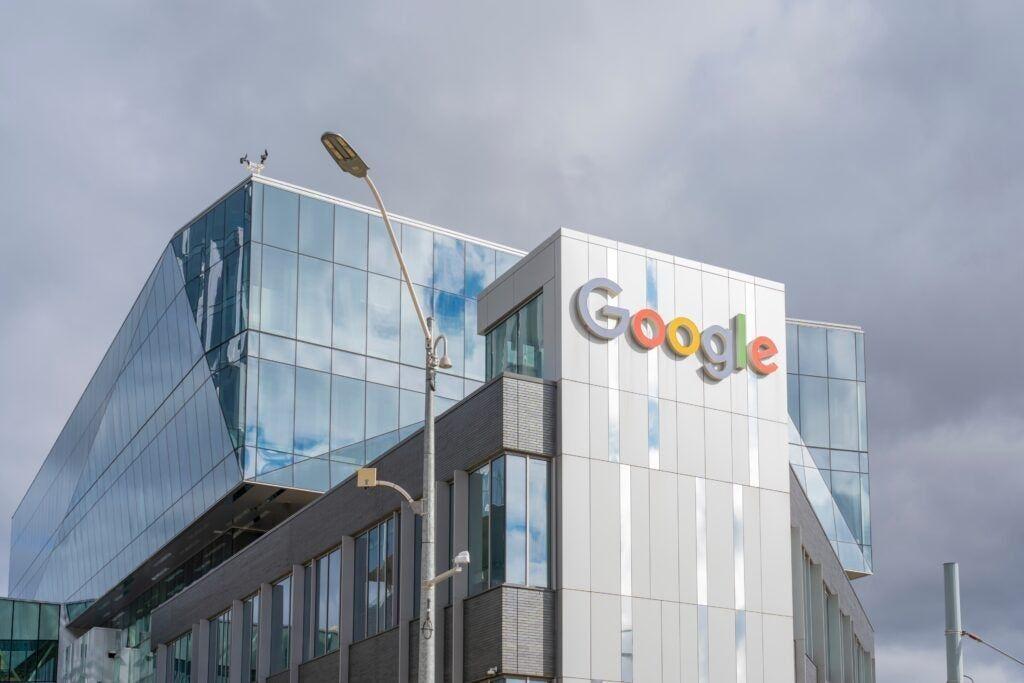Google Secures $2.4 Billion Licensing Deal with AI Coding Startup Windsurf
5 Sources
5 Sources
[1]
Google to pay $2.4 billion in deal to license tech of Windsurf, WSJ reports
July 11 (Reuters) - Google (GOOGL.O), opens new tab has agreed to pay about $2.4 billion in a deal to license the technology of artificial intelligence-assisted coding tool Windsurf, The Wall Street Journal reported on Friday, citing people familiar with the matter. Reuters could not immediately confirm the report. Earlier on Friday, a Google spokesperson told Reuters that the company has hired Windsurf CEO Varun Mohan, co-founder Douglas Chen, and select members of the coding tool's research and development team to join its DeepMind division, in a move to strengthen itself in the race for AI leadership. Reporting by Anusha Shah in Bengaluru; Editing by Muralikumar Anantharaman Our Standards: The Thomson Reuters Trust Principles., opens new tab Suggested Topics:Artificial Intelligence
[2]
Google to pay $2.4 billion in deal to license tech of Windsurf: Report - The Economic Times
Earlier on Friday, a Google spokesperson told Reuters that the company has hired Windsurf CEO Varun Mohan, co-founder Douglas Chen, and select members of the coding tool's research and development team to join its DeepMind division, in a move to strengthen itself in the race for AI leadership.-Google has agreed to pay about $2.4 billion in a deal to license the technology of artificial intelligence-assisted coding tool Windsurf, The Wall Street Journal reported on Friday, citing people familiar with the matter. Reuters could not immediately confirm the report. Earlier on Friday, a Google spokesperson told Reuters that the company has hired Windsurf CEO Varun Mohan, co-founder Douglas Chen, and select members of the coding tool's research and development team to join its DeepMind division, in a move to strengthen itself in the race for AI leadership.
[3]
Google Beats OpenAI, Secures Windsurf Technology, CEO And Key Staff For $2.4 Billion - Alphabet (NASDAQ:GOOG), Alphabet (NASDAQ:GOOGL)
Alphabet Inc.'s GOOG GOOGL Google has finalized a $2.4 billion agreement to license technology from AI coding startup Windsurf. This deal also includes hiring Windsurf's CEO and a select group of its employees. What Happened: Google has reached a $2.4 billion deal with Windsurf, an AI coding startup, according to a report by The Wall Street Journal. The agreement involves licensing technology and hiring the company's CEO, Varun Mohan, cofounder Douglas Chen and some of the company's key R&D employees to bring them to the Google DeepMind team. This development comes after OpenAI attempted to acquire Windsurf for $3 billion. However, negotiations fell through due to objections from Microsoft MSFT, OpenAI's largest investor, particularly concerning access to Windsurf's technology. Subscribe to the Benzinga Tech Trends newsletter to get all the latest tech developments delivered to your inbox. Google's arrangement will see a small number of Windsurf employees join its DeepMind division to work on agentic coding. The tech giant will gain a nonexclusive license to some of Windsurf's technology but will not acquire any equity in the startup. Most Windsurf employees will remain with the company. See Also: Oklahoma & Minnesota Marijuana Legalization, Repercussions After Congressional Hearing, Cannabis In Thailand - Benzinga Why It Matters: The backdrop to this deal is a fierce competition among tech giants to dominate the AI landscape. Earlier this year, OpenAI had agreed to acquire Windsurf for $3 billion. However, the acquisition fell apart, as noted by TechCrunch, when Microsoft, a key investor in OpenAI, raised concerns about access to Windsurf's technology. The failed acquisition attempt by OpenAI underscores the competitive nature of Silicon Valley, where major tech companies are in a race to secure top AI talent. Google previously invested $2.7 billion to hire former researcher Noam Shazeer and license technology from Character.AI, a startup he founded. Check out more of Benzinga's Consumer Tech coverage by following this link. Read Next: Elon Musk Rejects Reports That xAI Is Looking To Raise Additional Funds At $200 Billion Valuation: 'We Have Plenty Of Capital' Disclaimer: This content was partially produced with the help of AI tools and was reviewed and published by Benzinga editors. Photo courtesy: JHVEPhoto / Shutterstock.com GOOGAlphabet Inc$181.081.33%Stock Score Locked: Want to See it? Benzinga Rankings give you vital metrics on any stock - anytime. Reveal Full ScoreEdge RankingsMomentum27.05Growth86.69Quality84.73Value52.19Price TrendShortMediumLongOverviewGOOGLAlphabet Inc$180.071.38%MSFTMicrosoft Corp$503.490.40%Market News and Data brought to you by Benzinga APIs
[4]
Google Lands Key AI Talent from Windsurf in $2.4 Billion Licensing Deal | PYMNTS.com
By completing this form, you agree to receive marketing communications from PYMNTS and to the sharing of your information with our sponsor, if applicable, in accordance with our Privacy Policy and Terms and Conditions. Unlike a traditional acquisition, Google's agreement involves paying $2.4 billion in licensing fees to utilize certain Windsurf technologies under a non-exclusive arrangement, a person familiar with the deal told Reuters. Importantly, Google will not acquire any ownership stake or controlling interest in Windsurf, the individual added. Windsurf CEO Varun Mohan, co-founder Douglas Chen, and several members of the startup's research and development team are set to join Google's DeepMind division. According to Reuters, this newly integrated team will concentrate on advancing Google DeepMind's agentic coding projects, particularly the Gemini initiative. Google confirmed the move, stating, "We're excited to welcome some top AI coding talent from Windsurf's team to Google DeepMind to advance our work in agentic coding," according to a company spokesperson. The acquisition of talent through licensing and personnel moves echoes a growing trend among major technology firms. This approach, sometimes referred to as "acquihire," has been increasingly employed to bolster AI capabilities while sidestepping regulatory hurdles often triggered by outright acquisitions. For example, Google previously executed a similar hiring of key staff from chatbot startup Character.AI in August 2024, Reuters reports. Read more: Google Fails to Sway Rivals in Final EU Talks, Risking Digital Markets Act Penalty Other tech giants have also embraced this strategy. Microsoft inked a $650 million deal with Inflection AI earlier this year to license AI models and hire its team, while Amazon recruited leadership from AI startup Adept in mid-2024. Meanwhile, Meta took a substantial 49% stake in Scale AI, underscoring the growing reliance on partnerships and partial investments rather than full buyouts. Though these arrangements avoid the need for antitrust reviews typically required for acquisitions, regulators have started scrutinizing such deals to determine if they are being used to evade oversight or suppress competition, according to Reuters. For Windsurf, which raised $243 million from investors including Kleiner Perkins, Greenoaks, and General Catalyst and was last valued at $1.25 billion a year ago, the deal provides significant liquidity through the licensing fees while allowing investors to maintain their ownership stakes. Most of Windsurf's approximately 250 employees will remain with the company, which plans to double down on innovation for its enterprise clients. Windsurf's business head Jeff Wang has stepped into the role of interim CEO, with Graham Moreno appointed president, per Reuters.
[5]
Google to pay $2.4 billion in deal to license tech of Windsurf, WSJ reports
(Reuters) -Google has agreed to pay about $2.4 billion in a deal to license the technology of artificial intelligence-assisted coding tool Windsurf, The Wall Street Journal reported on Friday, citing people familiar with the matter. Reuters could not immediately confirm the report. Earlier on Friday, a Google spokesperson told Reuters that the company has hired Windsurf CEO Varun Mohan, co-founder Douglas Chen, and select members of the coding tool's research and development team to join its DeepMind division, in a move to strengthen itself in the race for AI leadership. (Reporting by Anusha Shah in Bengaluru; Editing by Muralikumar Anantharaman)
Share
Share
Copy Link
Google has agreed to pay $2.4 billion to license technology from AI-assisted coding tool Windsurf, while also hiring key personnel including the CEO and co-founder to join its DeepMind division.
Google's Strategic Move in AI Technology
In a significant development in the artificial intelligence (AI) sector, Google has struck a deal worth $2.4 billion to license technology from Windsurf, an AI-assisted coding tool startup. This agreement not only involves a substantial financial commitment but also includes the acquisition of key personnel from Windsurf
1
.
Source: Benzinga
Deal Structure and Personnel Acquisition
The deal structure is noteworthy for its non-traditional approach. Instead of a full acquisition, Google has opted for a licensing agreement that grants them non-exclusive access to Windsurf's technology. This arrangement allows Google to utilize Windsurf's innovations without taking an equity stake in the company
4
.A crucial aspect of this deal is the hiring of key Windsurf personnel. Google has confirmed that Windsurf's CEO Varun Mohan, co-founder Douglas Chen, and select members of the research and development team will be joining Google's DeepMind division
2
. This move is seen as a strategic effort to bolster Google's position in the competitive AI landscape.Impact on Windsurf and Industry Dynamics
For Windsurf, this deal represents a significant financial windfall while allowing the company to maintain its independence. The startup, which had previously raised $243 million from investors and was valued at $1.25 billion, will retain most of its 250 employees. Jeff Wang, Windsurf's business head, has stepped in as interim CEO, with Graham Moreno appointed as president
4
.Related Stories
Competitive Landscape and Industry Trends

Source: PYMNTS
This deal comes in the wake of intense competition among tech giants in the AI field. Notably, OpenAI had previously attempted to acquire Windsurf for $3 billion, but the deal fell through due to objections from Microsoft, OpenAI's largest investor
3
.The transaction reflects a growing trend in the tech industry where companies are opting for talent acquisition and licensing deals rather than full acquisitions. This approach, sometimes referred to as "acquihire," allows companies to enhance their AI capabilities while potentially avoiding regulatory scrutiny associated with outright acquisitions
4
.Regulatory Considerations
While these licensing and talent acquisition deals may sidestep some regulatory hurdles, they are not entirely free from scrutiny. Regulators have begun to examine such arrangements to determine if they are being used to evade oversight or suppress competition
4
. This increased attention highlights the complex regulatory landscape surrounding AI and tech acquisitions.
Source: ET
As the AI race intensifies, this deal underscores the high stakes and substantial investments that major tech companies are willing to make to secure cutting-edge AI technology and talent. It also reflects the evolving strategies employed by these companies to navigate the competitive and regulatory challenges in the rapidly advancing field of artificial intelligence.
References
Summarized by
Navi
[5]
Related Stories
Google Snags Windsurf's Top Talent, Cognition Acquires Company in AI Coding Frenzy
12 Jul 2025•Business and Economy

OpenAI's $3 Billion Acquisition of Windsurf: A Strategic Move in the AI-Powered Coding Race
06 May 2025•Business and Economy

Google's $2.7 Billion Gambit: The Return of AI Genius Noam Shazeer
26 Sept 2024

Recent Highlights
1
ByteDance Faces Hollywood Backlash After Seedance 2.0 Creates Unauthorized Celebrity Deepfakes
Technology

2
Microsoft AI chief predicts artificial intelligence will automate most white-collar jobs in 18 months
Business and Economy

3
Google reports state-sponsored hackers exploit Gemini AI across all stages of cyberattacks
Technology





